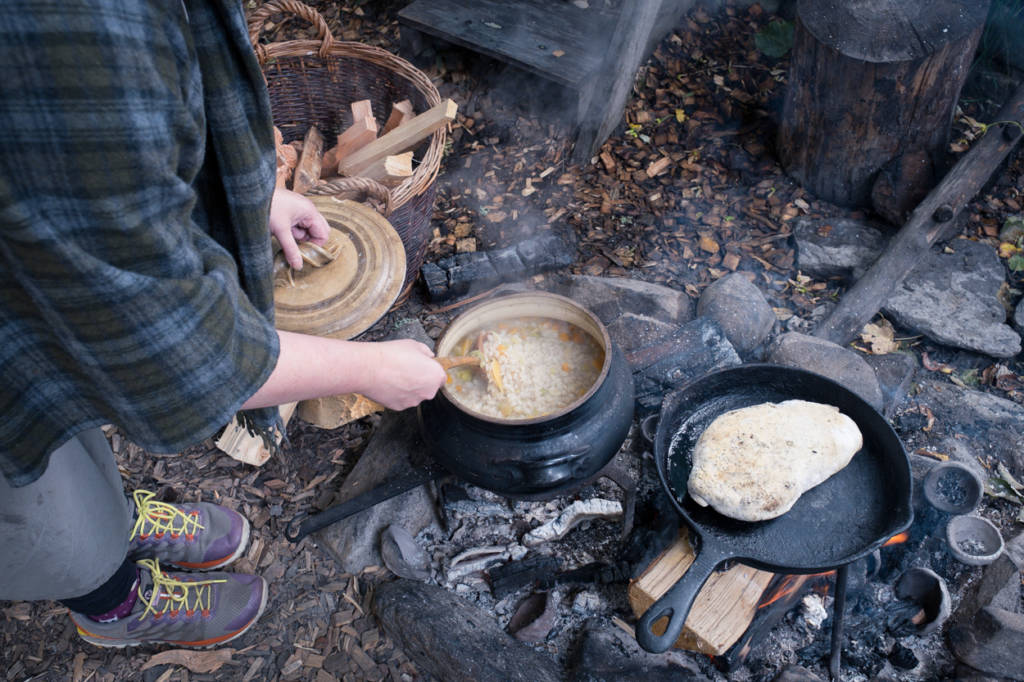
10.11.21
CULTIVATE is a regional leadership programme for Creative Practitioners and Local Communities to collaboratively engage, create and produce locally relevant work, with a climate and social justice lens, across the Tay region.
Now half-way into their commission, the Creative Practitioners have been invited to share more about their journey so far, and how they see their project evolve in collaboration with communities.
Taylor is working with our Community Partner, The Scottish Crannog Centre, near Aberfeldy, in Perth and Kinross. Learning from our iron age past of oral histories and shared skills, providing an insight into creative pratices for a more sustainable future.
Climate justice. Two words that are, individually, extremely daunting.
Climate – the untouchable and the unseen balance of nature and nurture that enables my chest to inflate with (somewhat) clean air, my stomach to be filled with grown food and my home to stay above sea level. Next door is Justice – rooted in equity and righteousness, its meaning now seamlessly shifting between man-made constructs of governance and the natural order of life and good-natured folk.
Without dwelling on semantics (and I could dwell), climate justice is huge. It’s bigger than I can even comprehend, far bigger than I could tackle in a single blog post. It’s something I, like many other people, became aware of through the melodic voice of David Attenborough. Then, in time, fiercely passionate about climate justice while engaging with movements like those at Faslane Peace Camp or, more recently in the action of Extinction Rebellion. In what felt like no time at all I was reading the IPCC report and attending marches, adding my fingerprint to a sea of homemade banners, bobble hats and hopeful faces.
I’ve always loved words. I loved that they could communicate with people. In big or small ways, just like that banner does. I’m a writer (at least that’s what my LinkedIn says). Words are quite literally my bread and butter, however my CULTIVATE residency has forced me to tackle just that.
I’m keen to step away from structured patterns of writing. Writing is daunting. On top of the semantics I mentioned earlier, you’ve also got grammar and poetry, dictionaries, thesauruses and a whole lot of pressure. Will people understand what I am writing? Will my writing resonate with others? Will my writing be any good? Writing can also feel like an extremely lonely process, from the outside looking in it can seem very insular, secretive. I didn’t want my residency to be shrouded in these ideas of writing. So, it’s probably a good thing that I ended up at the Scottish Crannog Centre.
The Scottish Crannog Centre sits naturally on the banks of Loch Tay, with a view of Kenmore, Ben Lawers and Ben Ghlas. It is part museum, part community, always political. The Crannog tells the story of Iron Age Scotland – a period that I have discovered was not the meek, dirt brown existence I had in my head. Rather, it was most probably an endlessly colourful and fulfilling life. A step back in time to walk with our ancestors who lived very much with the land rather than just on it.
Fittingly, the community ambition for this project is centred in shared ownership. It got me wondering whether my writing practice could shift from a sole process to a shared one. Not only shared with the community but shared with the land as the Iron Age population would have done. We began exploring this with a community diary, I’ve spent a lot of time listening to auld folk tales and taking part in activities that can only happen with varying levels of expertise and interest. These initial experiences have led me to the fragments of a project I hope to piece together.
Moving forward, I’m looking forward to engaging an intergenerational crowd, discussing, and developing hyper-local ideas on climate justice. Putting into practice written ideas. For example, exploring the impact of orally transmitted stories and even engaging in practical traditions with our physical environment. Being on this road to discovery with our ancestors from 2,500 years ago, it would feel incomplete only to engage our “future generations”, a step sideways rather than forward. It has, after all, only been in the past one hundred years that plastic was invented and superstores changed our lives from community to individually focused. Without a progressive conversation through the ages, we will only continue to fail our planet.
Coincidentally, I think that success looks like failure (or similar at least). Success in this project, for me, will look like we have failed. We will not have achieved the gleaming beacon of carbon zero nor will we have all of the answers to living with rather than on land but we will be talking, considering and hopefully even writing a new future (without words!).
CULTIVATE is a pilot project, which engages communities with climate justice, through creativity and peer-education. We’ll be sharing insights into each of our first six Creative Practitioner commissions over the coming weeks. Read more about our Community Partners and the six commissions.

If you would like to support us in creating even better content, please consider joining or supporting our Amps Community.